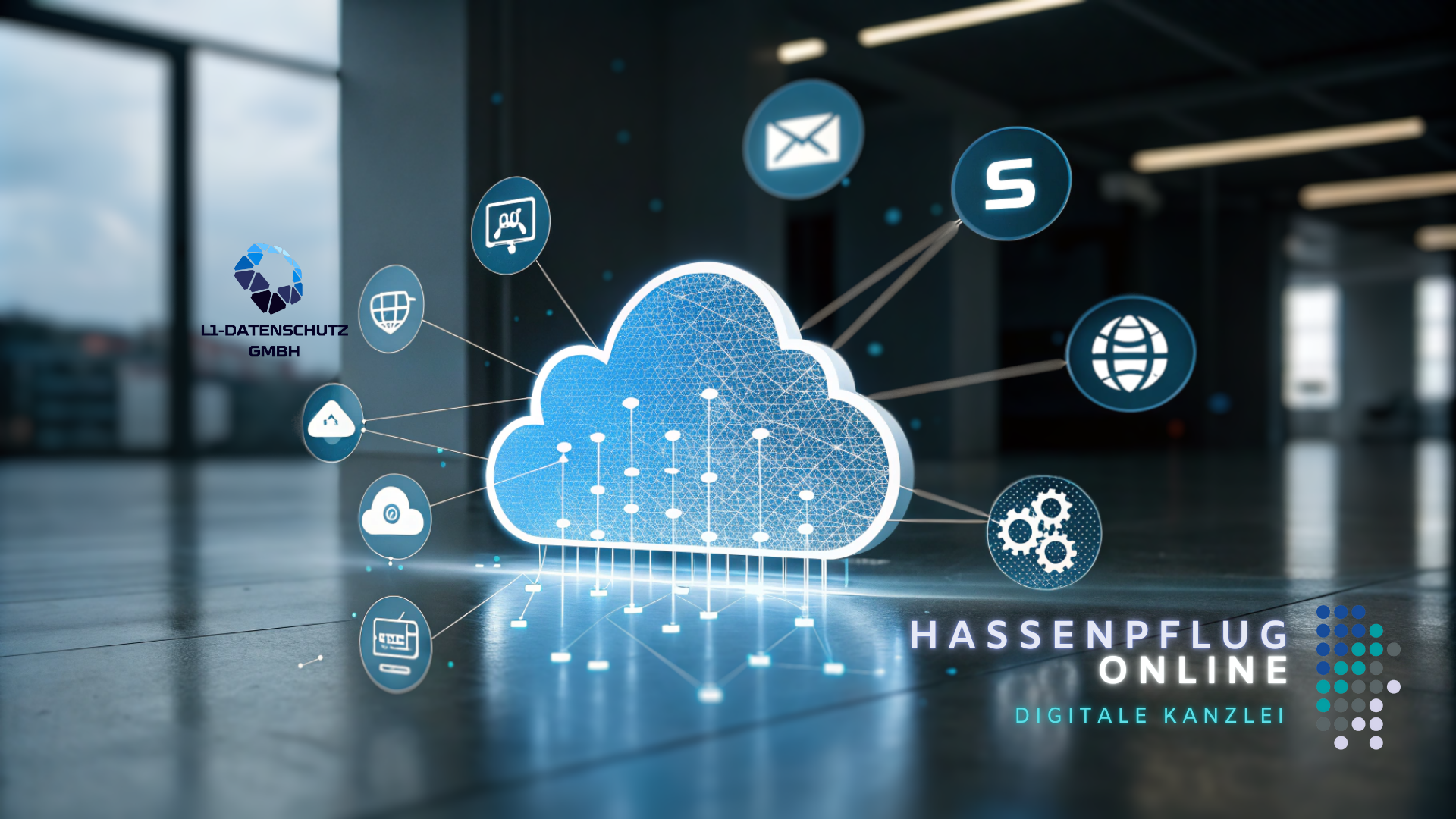AI in tax offices: Increase efficiency, maintain security, shape the future
HASSENPFLUG.ONLINE
Employees
are the foundation
Processes
define workflows
Digitization
is the basis of automation

Artificial intelligence in tax consulting – opportunity or risk?
Digitalization is fundamentally transforming the tax industry – and artificial intelligence (AI) is playing a central role. Automated processes, intelligent analytics, and optimized workflows offer enormous efficiency potential. At the same time, tax firms face new challenges: data protection, compliance, and the meaningful integration of AI tools into existing workflows.
But how exactly do law firms benefit from AI? And what risks must be considered? The introduction of AI is not a mere technical change, but a strategic decision. Without clear planning and the right know-how, the use of AI can bring more uncertainty than benefit. Therefore, it is important to fully understand the possibilities, but also the limitations, of this technology. Which activities can be truly efficiently automated, and where do humans remain irreplaceable? Furthermore, the question arises as to how AI can be integrated into existing day-to-day law firm operations without disrupting established processes. Lack of transparency, regulatory uncertainty, and data protection risks are key issues that should not be underestimated.
Would you like to find out how AI can advance your tax practice? Take advantage of our consulting services:
➡ Test your AI knowledge with our questionnaire here
➡ Book a free 30-minute initial consultation
➡ Discover practical AI training courses
Our tax and IT experts will show you how to leverage AI to future-proof your firm—with maximum security and in compliance with all regulatory requirements. We'll help you make the right decisions, avoid pitfalls, and develop a sustainable digitalization strategy.
Why you should get involved with AI
Increasing efficiency through automation
AI can take over repetitive, time-consuming tasks – from document processing to intelligent document allocation. This leaves more time for value-added activities and personal consultations with your clients. Especially in an industry where skilled workers are in short supply, the targeted use of AI can provide noticeable relief for your team. Instead of dealing with error-prone, manual data entry, employees can invest more time in strategic tasks.
One example: the automatic capture and categorization of documents. Where hours of manual sorting were previously required, AI can extract the relevant data and correctly assign it in just a few minutes. AI can also significantly accelerate processes in internal and external collaboration. But it's not just about speed – AI can reduce errors by taking over routine tasks and reliably supporting the evaluation and processing of data. This helps identify problems early and improve the quality of your services.
Secure use and data protection
As AI usage increases, so does the responsibility for protecting sensitive client data. Data protection and IT security are key issues for tax firms, which must address them not only for legal reasons but also to build trust. Clients expect their data to be processed securely – and this means that AI solutions may only be used if they meet the highest security standards.
But how can AI-supported processes be ensured to remain compliant with the GDPR and the EU AI Act? One of the biggest challenges is creating transparency about how the AI used works. Where is the data processed? Who has access? What decisions does the AI make automatically? These questions must be clearly answered before a solution is implemented. Tax firms should also carefully examine which data may be used for AI models to avoid unintentional data protection violations.
Competitive advantages through modern technologies
Clients (and employees) increasingly expect digital processes and fast response times. Law firms that leverage AI effectively can differentiate themselves from the competition, reduce costs, and work more efficiently. In a rapidly changing tax landscape, digital pioneers can enjoy decisive advantages. While traditional law firms still struggle with inefficient workflows, AI-powered law firms benefit from optimized processes, better data analysis, and faster results.
But it's not just about efficiency – modern technologies like AI also enable law firms to offer innovative services. For example, AI can help clients gain a better overview of their financial situation. AI-powered chatbots could also answer simple client inquiries around the clock without requiring employees to invest time. This not only creates a competitive advantage but also real added value for clients, which the law firm can then offer as a scalable and monetizable product.
Take advantage of the opportunities offered by AI – safely and efficiently!
Whether you're new to AI or have already gained some experience, we'll help you integrate artificial intelligence into your tax practice safely, efficiently, and in compliance with the law . We see ourselves as a self-help tool, not as a salesperson of any product.
➡ Test your AI knowledge with our questionnaire here
➡ Book your free initial consultation now
➡ Find the right AI training for your law firm
Make your law firm fit for the future!
